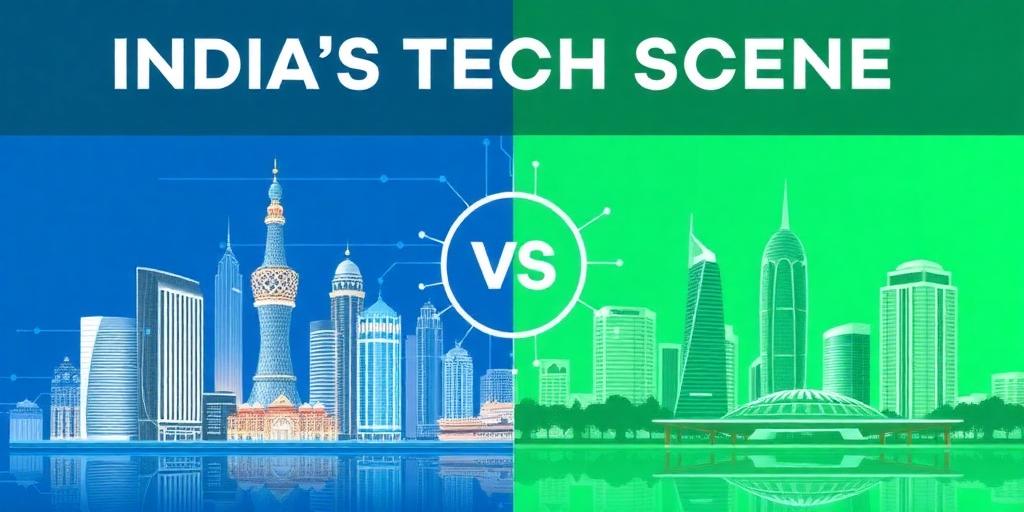India's burgeoning technology landscape is a testament to its innovation and talent, with two cities consistently at the forefront of this revolution: Bangalore and Hyderabad. Often dubbed the 'Silicon Valley of India,' Bangalore has long held the crown, but Hyderabad's impressive growth in recent years has ignited a fervent debate about which city truly offers the superior ecosystem for tech companies and professionals. This authoritative analysis delves into the strengths and unique propositions of both, providing a nuanced perspective on India's tech scene.
Bangalore: The Established Tech Powerhouse
Bangalore, officially Bengaluru, has an undeniable legacy. Its journey began decades ago, fostering a robust IT services industry before evolving into a thriving hub for startups and product development. The city boasts a mature ecosystem, characterized by a vast pool of highly skilled tech talent, premier educational institutions, and a strong venture capital presence. Major global tech giants, alongside a multitude of innovative startups, have established significant operations here, creating a vibrant network for collaboration and talent acquisition. For anyone looking into the Indian IT hubs comparison, Bangalore's extensive infrastructure for tech, including numerous co-working spaces and innovation centers, remains a significant draw.
Furthermore, the sheer volume of experienced professionals and the established 'startup culture' in Bangalore mean that companies often find it easier to scale. The city's extensive professional networks and access to early-stage funding have historically given it an edge, cementing its position as a go-to destination for those seeking to capitalize on the best tech city India has to offer in terms of sheer scale and opportunity.
Hyderabad: The Rising Tech Star
Hyderabad, the capital of Telangana, has emerged as a formidable challenger, showcasing remarkable growth and strategic development. Its rise can be largely attributed to proactive government policies, which have incentivized tech investment and facilitated ease of doing business. The city has focused on developing world-class infrastructure, particularly in areas like Gachibowli and Hitech City, offering modern office spaces and well-planned urban environments. This strategic approach has attracted significant investments from multinational corporations in sectors like IT, pharmaceuticals, and gaming.
One of Hyderabad's key advantages, particularly when evaluating Bangalore vs Hyderabad tech, is its relatively lower cost of living and operating expenses compared to Bangalore. This makes it an attractive proposition for companies looking to optimize budgets without compromising on talent or infrastructure. The consistent Hyderabad tech growth, supported by a growing talent pool from reputable local universities, positions it as a highly competitive alternative for companies and professionals alike.
Key Differentiators and the Path Forward
While both cities offer compelling environments, distinct differences shape their appeal. Bangalore's strength lies in its deep, diverse talent pool, particularly in niche and emerging technologies, and its unparalleled access to venture capital. However, it grapples with issues like high real estate costs, traffic congestion, and infrastructure strain.
Hyderabad, on the other hand, provides a more cost-effective environment, better urban planning, and strong governmental support, making it an attractive option for large-scale operations and companies prioritizing sustained growth with controlled expenditure. Its talent pool is rapidly expanding, though perhaps not yet as diverse in specialized areas as Bangalore's.
Ultimately, the 'best' tech city in India is subjective, depending on specific company needs or individual career aspirations. Bangalore continues to be a magnet for high-growth startups and established tech giants seeking a mature ecosystem and diverse talent. Hyderabad, with its strategic advantages and aggressive growth trajectory, is increasingly appealing to companies prioritizing cost-efficiency, infrastructure, and a supportive regulatory environment. The debate between Bangalore vs Hyderabad tech isn't about one superseding the other, but rather about the dynamic evolution of India's tech scene, offering diverse pathways for innovation and success.









